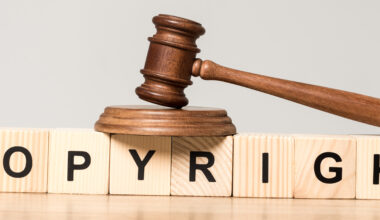Audiovisual Works are Integral Works as Broadcast or Rebroadcast as a Single Work and Not as a Set (Collection) of Various Component Works
In the judgment of the Polish Court of Appeal in Warsaw of May 22, 2013 (I ACa 1359/12) it was confirmed that the use of an audiovisual work is—by virtue of a legal presumption—subject to an exclusive right of the producer of such a work and, as long as that work is used as the whole, the broadcasters or rebroadcasters transmitting it do not require additional licences for its integral parts
(for instance musical and worded-musical works with words) from the respective copyright collecting society representing those integral parts or pre-existing works. The court pointed out that until that assumption was disproven it is the producer and not the authors who holds the right to use the audiovisual work as a whole. The Appeal Court stressed also that an audiovisual work is not a set (collection) of various so-called component works: it is a single work.


